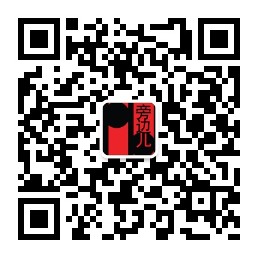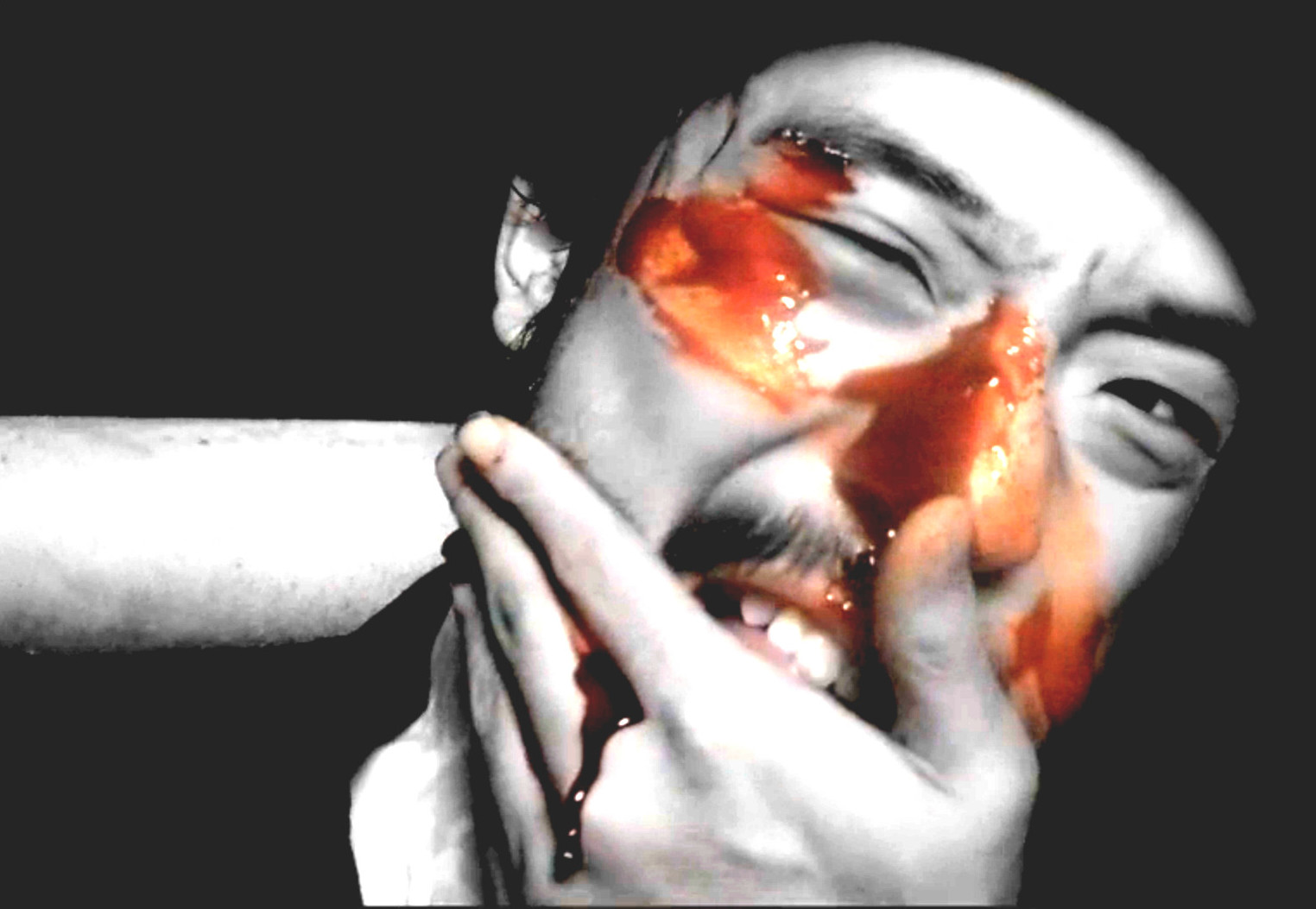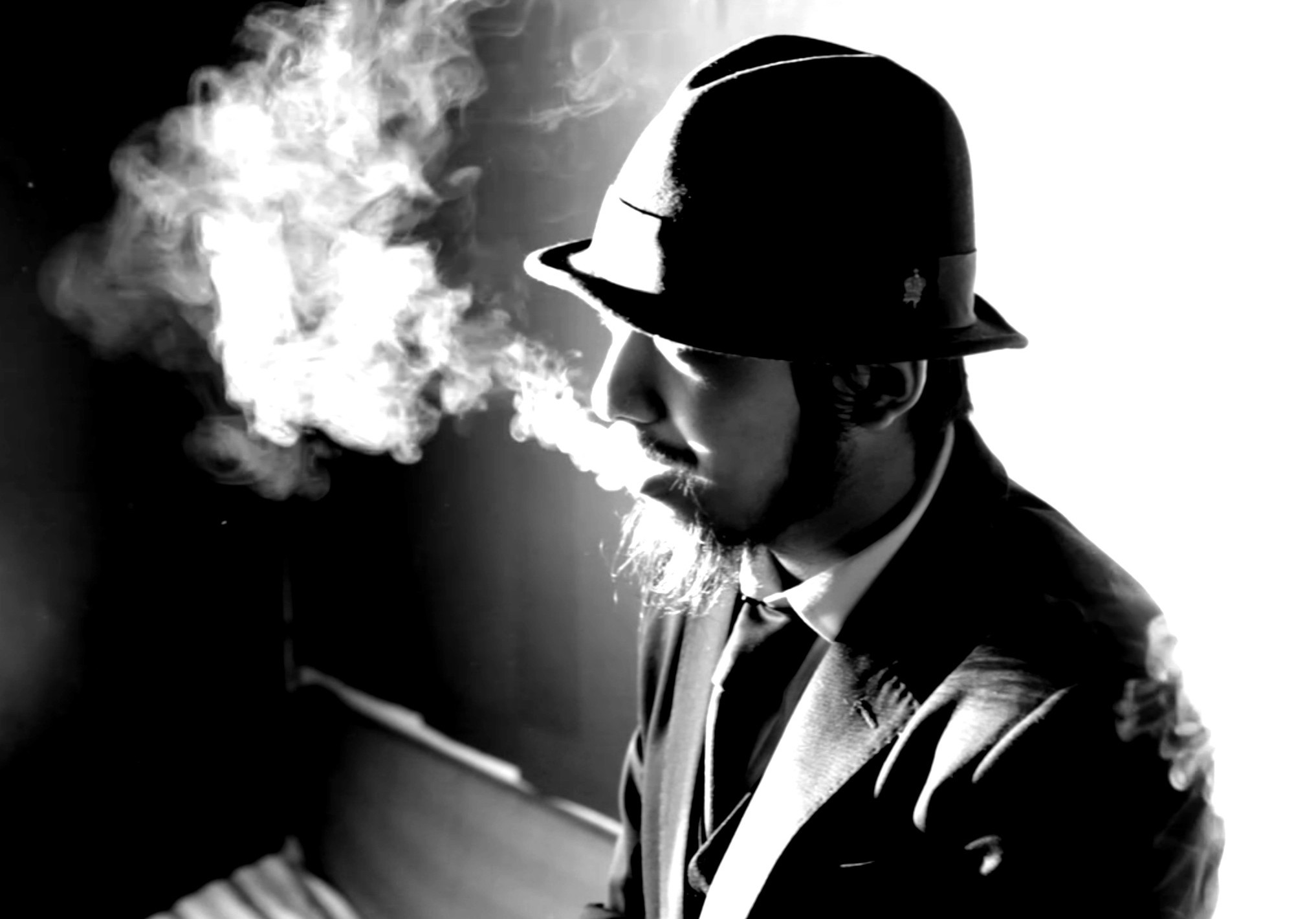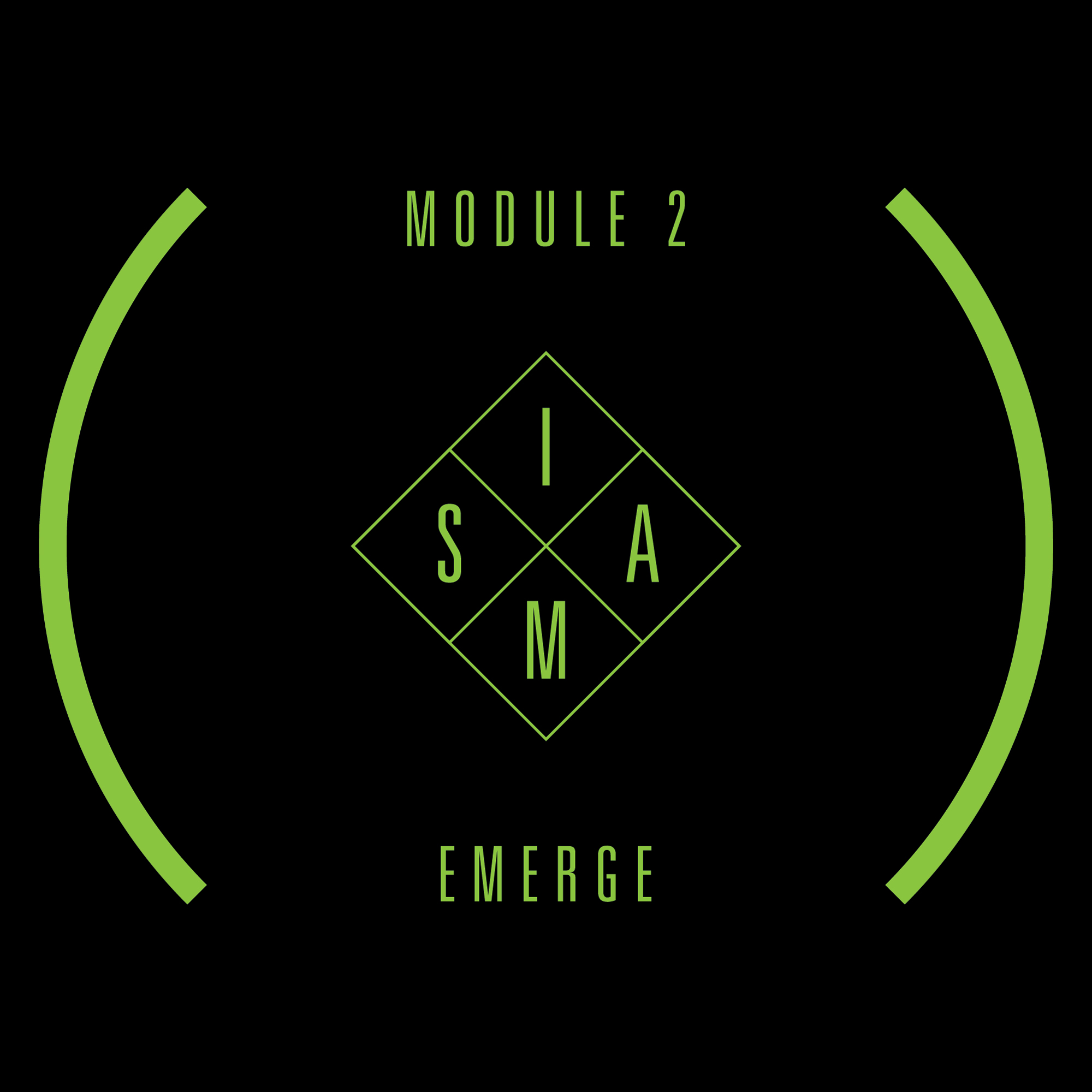采访:颜峻 Yan Jun Interview
By Josh, 2010年 12月 22日
《 查看中文采访 》
Music writer and sound artist Yan Jun has been active in Chinese experimental music since its inception in the mid-1990s. He launched publishing platform Subjam in 2001 and Kwanyin Records a few years later. Through these two labels he has produced hundreds of experimental recordings, documents of live performances, publications, videos, event series, and sound art exhibitions.
From June 2005 through January 2010 he organized a weekly showcase of extreme rock, laptop compositions, harsh noise, and other forms of sonic strangeness under the name Waterland Kwanyin. Later in 2010, Subjam collaborated with UCCA in 798 on a monthly event series, which will culminate in a performance this Saturday (view douban event). I talked to Yan Jun about the history of Subjam, his motivations for organizing Waterland Kwanyin, how the UCCA series fit into the evolution of Subjam’s engagement with experimental music in Beijing, and his plans for the future.
To receive more Subjam updates, join their mailing list by contacting Yan Jun: Subjam Mailing List
pangbianr: When did you start Subjam?
Yan Jun: In 1998 I made a small magazine and I thought, “Ok, I need a title now.” Subjam jumped in my head. But that was only one small book. Two years later in Beijing I started to use this name for a label. I had a Chinese name too, TIE TUO. We used this name in 2001 but later we stopped using it. TIE TUO means very supportive. More than fans, more than a groupie. It means a supporter. TIE means very good relationship. In Beijing we say “TUO” when I’m selling something and you’re my friend, you come to buy this again and again, you make other people believe this is a good thing. So TIE TUO means a strong supporter.
pbr: What artists were you working with when Subjam started as a label?
YJ: The first release was a compilation. My book, Noises Inside, was a collection of reviews. I decide to make a compilation [also called Noises Inside] that included ZUO XIAO ZU ZHOU, SHE TOU (Tongue), YOU DAO SHE (Lure), WANG FAN, FENG JIANGZHOU, HU MA GE… everything I could find at that time, every underground thing: some noise, some experimental rock. After this I released P.K. 14 and SHE TOU, their live recording, and NAO ZHUO (Brain Failure). We started from rock. After that was WANG FAN (experimental) and SUN DAWEI (electronic). By 2004, we had released 15 or 16 titles. After that I decided to do more. I started to make music myself. I decided to make more releases as just sound or more experimental music, so we started a new label. LAO ZHAO (Christiaan [Virant]) and Zhang Jian from FM3, Wang Fan, Wu Quan and I started this new label: Kwanyin Records. Now Subjam is more like a company, a group, a mothership. No more music released on Subjam, just Kwanyin records.


pbr: What were some of the earliest musical influences for the first generation of experimental musicians in Beijing and China?
YJ: The influence was actually just DA KOU [打口碟 — smuggled cds], rock and roll or a little bit extreme rock and roll. In the mid-90s, the first generation of experimental musicians, without exception, everyone was rocker. So I wanted more rock, more hard or extreme or loud. I needed a more extreme direction, so just discover from DA KOU. For example, the label Earache, that was a death metal label but they released some really extreme things like John Zorn’s Painkiller and Kevin Sharp’s solo project, and Justin Broadrick from Godflesh, something from the underground scene but a little bit avant garde or experimental. This feeling was very experimental for the rockers. I think they were hungry, looking for everything different, looking for everything extreme.
So on one hand, looking for the DA KOU [was an early influence]. On the other hand they’re trying to make something with guitar and synthesizer, and 4-track recorder. In the mid-90s people did a lot of experimental stuff, but it’s not really experimental music, just experiments about how to make rock music or songs strange. But later some people like LI JIANHONG and WANG FAN start to try really different ways to make noise using some machines. So I don’t know how to say where’s the influence, I think it’s half influenced from everywhere, from the mess of the DA KOU, and they have a very strong desire to do something. At that time there was a very underground feeling because in the 90s this country was very boring. After Ju//e fourth, people were just feeling disappointed. It’s like, “OK, now we have chance to make more money, to change our life, so let’s do it.”
pbr: When did you begin the Waterland Kwanyin concert series?
YJ: 5 years ago. Yesterday I read an article I wrote in 2004. I tried to describe what will happen in the next year. I said, “There will be more small concerts, more experimental activities, more strange musicians.” And then next year I had the will, I wanted to do something, and then I found 2Kolegas. I found this place and I found some people to work together. That was June 2005. Actually I just wanted to find a place for myself and my friends. At the end of 2004 I went to Europe for the first time with FM3 and WU QUAN. There was also another group organized by YAO DAJUN, it was LI JIANHONG and WANG CHANGCUN and ZHONG MINJIE from Guangzhou. We met in Paris and Brussels and after one concert in Brussels, WANG CHANGCUN got a contract with Sub Rosa and released an album. That was his only time in Europe and outside of China.
After that trip, I was very excited. I came back to Beijing and organized some small concerts, but I felt I don’t want to play after a rock band, I want to play with some more little bit pure feeling [pure nose/experimental musicians]. I wanted a quiet environment. 2Kolegas is not a quiet place, but it’s very warm. I was accustomed to River Bar, a very important place for the for the folk music scene, the singer/songwriter scene. Some underground bands also hung out there. There was a little bit hippie style, family feeling. So when I went to 2Kolegas for the first time I thought, “Wow, it’s another River. I love it!” I forgot I wanted to find a quiet place. I think 2Kolegas is not so professional, so I decided to do that. This makes everything very easy, very warm, very loose. I didn’t design that, but everything — the people from 2Kolegas, the environment — everything together makes the result. But now I changed my mind again.
pbr: So Waterland Kwanyin started in June 2005 and ended December 2009?
YJ: The last one was this year [2010] actually, January 16. There were 167 times [total]. Always changing… In the very beginning there was a lot of improvisation, instrument-based improvisation, because FM3 and instrument players always joined. Sometimes we even had CUI JIAN, XIE TIAN XIAO. Once I said to XIE TIAN XIAO, “You should come on stage and play some improvised guitar. You should try.” After playing he asked me, “Do you think this is ok? I’m not sure…” That was a very good concert actually, but he was… he wasn’t sure, maybe that was his only time to play like that on stage.
Then there was maybe one year of a lot of laptop. It’s like everyone who came to China and contacted me was a laptop player. And then, next period everyone was harsh noise. I didn’t design this but it always changed. And audience always changed. There was about a year where every show had 150 people, except winter, in winter only sometimes 50, but it’s quite a lot. That was very successful. This success made me think it’s good, but I don’t like that. I know I have this ability, I am maybe a very good party host, but I want to do something else. I want to do something more. I want to have a good music environment. So I start to think how to change. One day, I think, “OK, stop.” Now I think we are in a very hard time.
yan jun + … + vavabond – June 26th trio at ucca by Sub Jam
pbr: How did you initially get involved with UCCA?
YJ: Actually they invited me. This is the second time people from UCCA invited me. The second time was Cui Qiao. We had collaborated on MIDI Festival. Cui Qiao [worked for] the Goethe Institute, and after that she changed her job to UCCA. She started to make UCCA like a supermarket with thousands of events, everything, put everything into the space. But anyway I know her before that, so she invited me to do something. That was end of last year I think. I really loved 2Kolegas because the people, the sound system and the space, the feeling is very… it’s not the best soundsystem but very good for my music actually, I like it. But I hate the bar feeling, you know. While you’re playing some people shout at the bar, maybe just lovely drunk people, your friends maybe. I think maybe let’s try some different place, a quiet place. The result was a big fail[ure]. But it makes me know more, makes me know about this time, this country, this cultural situation. So I think, “OK, you lost something, you get something. That’s balance.” I was very disappointed. Almost everyone involved in these UCCA concerts had this disappointed feeling, but I think, “OK, we get some knowledge, it’s a good lesson.”
pbr: Why were you disappointed?
YJ: They’re trying to do something very Western, professional, mechanical. Like I call, we talk, and we decide to do something. But no more support [beyond that]. For example, the acoustics in the space are not good, and the environment, and the audience… The most disappointing thing is I like to make something, not just organize something. I want to talk, to think with the organizer, with the venue people. [I like to] spend some time to eat something, drink something, to talk not about the concert but about everything. You have to waste some time to create. I want to create something with people, but they [are] just … very capitalis[tic]: “Let’s make more production in the shortest time with very few resources.” The feeling is too much like capitalism.
We did have some audience, but 99% were just tourists. This is a time of tourism, it’s a douban time, a douban culture. You get thousands of pieces of information, invitations, and suggestions in one day, and you pick up everything as “I’m interested in this this event, I’m interested in this guy,” but you don’t have time to go to the concert, you don’t have time to listen to this guy. You don’t have any patience to focus on anything. Compared to several years ago, the underground time, it’s like everything you want 10 years ago, now you have it. This is your dream. Ok, you have your dream! And now you are just a tourist of the world. “You” means the “qingnian”, my generation and younger. Of course we are lovely people, we love the culture, we love art, we love music, but we lost the patience. We’re just tourists from one new phenomenon to another new phenomenon, from one kind of music to another kind of music, from music to exhibition, from exhibition to party, to, you know… We just move, and make a mark on the map and take a picture, “I’m here, bye bye.”
So this UCCA [series] gave me a very very good lesson about the “supermarket” and tourist culture of this time. It’s not only about culture, it’s about this time, this society. I have more knowledge about this new form of capitalism. I extended my mind to some place beyond, I think about something I [wasn’t able to] answer 10 years ago. 10 years ago I think new is good, different is good, it is what we are trying to find and trying to create. Now I know “new” is just an illusion. “New” is not my logic, it’s capitalism’s logic. “New” is a lie, actually. It’s not about possibility, it’s just killing the possibility. Capitalism’s culture is always the same: we are creating a new thing, we are discovering the possibilities of the world, of everything. But this discovery is actually to manage it, to name it, to fix it. After this, no more possibilities. Real possibility means you have to keep something in the unknown, in the mystery, in the chaos. So now I rethink everything in my mind since 15 years ago, 10 years ago, and now I feel very happy. I worked with UCCA 12 times this year, and it’s helped me to improve my mind. It’s good. I think now the next step will be more clean. I feel it’s a very hard time.
pbr: What do you plan for this last performance at UCCA?
YJ: Before I thought I’m angry, I want to… fuck… I want to destroy! I want to use very powerful low-frequency sound, I want to rent two subwoofers to destroy, for example, the ugly [chandelier], AI WEIWEI’s work. I want to do something very aggressive. But now I decided I won’t do anything, I’ll just go there, I won’t make any sound. Now I have to work with these people. During the Waterland Kawnyin years I worked with a lot of musicians and other people, I worked with these lovely people, but now I think every one of us is in this situation. Isolated as an island in this tourist [system]. So I want to work with them again, or at least I want to talk with them again. A lot of my friends feel so powerless. Life is better: more information, more art, more everything, but it’s more boring and I can’t do anything, this feeling. So I want to talk with them, I want to share my mind with them. I think this concert is actually not a concert for other people, it’s for [us]. I want to meet them, have this reason to meet them, and share this. I wrote an email to them, I said, “This is a chance to face … the reality.” I want to talk about reality. I feel quite lonely, but I think I’m not the only one. I want to talk about this. I don’t think I can find a lot of audience this time, so I want to work, I want to talk with this group of people, and in the future I want to work, I want to talk, I want to make music for small audiences. Just come back, come back, smaller, smaller, and smaller, but just like…. to have less “girlfriends” [laughs].
pbr: What is your plan for Subjam and Kwanyin in the future?
YJ: I think in the future I [want to] make more creation, more than organizing. And organizing, for me, will be more like another kind of creation. I need more reason to organize something. So come back to make more exciting feeling for myself… it’s not just “Hey, next Sunday we have concert, please come with your instrument.” No, no more. I want to talk with people. “Why do we do this?” And also I think I have a more clean mind, clean thoughts about music. For Subjam, whatever the release and the concert, whatever it is, I think we will have clear direction. You have to be very clear inside of this great mess. I want to make something more extreme. You have to go extreme to survive. This is a really hard time. If you want to survive you have to go extreme, you have to be very clear. Now it’s not very exciting to discover everything, all the possibility of sound, focus on less things but dig in deeper. Now I’m thinking, “What is the music i’m making?” I think it’s music for listening. Of course you can use music in a bar, you can play music for your party, your lunch, your writing, and also music for film, music for dreaming, for crying, for dance, for making love. But I want to make music for listening. I mean less chance to be used, to be shared. I will lose 90% of my audience because I will refuse that you use my music for a purpose. I will choose my audience, I will choose my listener. I think this is the only way to survive in this time.
I’m coming to a very thin door. I try to go through this thin door. I opened Subjam for anyone, myself and my colleagues, my friends. We don’t think we are unique, we are artists, we are different people, we are high people, but we are normal people. The difference between artists and other people is artists are more normal, I think. So we are open, we are trying to open these possibilities. I think next year I will do a small tour in Beijing. I’ll go to audience’s home to play. We create a special environment, a special space to play. I’m sure I can play for anyone, whatever his background. I will make a very good communication between this sound, this music. I can do that. So less audience but higher, better results, better connection. This is the next step. Actually this thought is very important. The form, the result is not important.
Recent release from Mini Kwanyin, a new Subjam production spun off from Kwanyin Records (design by Ruan Qianrui):

You know in the last 2 years of Waterland Kwanyin I really felt lost, I felt tired and lost. I can’t trust myself, I didn’t know the future, [what] to do. RUAN QIANRUI asked me once, when he joined us, “Do you know what’s the next step, what’s the future of Subjam?” I said, “Sorry, I don’t know, but maybe we can discover this together.” We shared the hard time, and now I think we are very clear. It’s not only from UCCA, it’s also from myself. I was lost for a very long time. That was very painful. To think about what is music for me. To think what I will do in this world. Who am I? I’m a writer? I’m an artist? I’m a musician? I have thought about this a lot. Subjam evolved to a lot of musicians, a lot of people, so I think, “Ah, we are [influential].” But now I don’t care about this. This is just an illusion. I had a lot of illusions and now I think illusion is everywhere and I am more experienced with illusions. This is a very interesting feeling. A lot of illusions. I think my generation of musicians had a lot of problems inside, a lot of problems from the 90s and then we keep this as a kind of treasure. We have some memories, we have problems, we have some questions. I think this is our treasure. And now I’m using, I’m [digging into] this treasure. I enjoy that. It didn’t just start from UCCA. It started from Waterland Kwanyin, it started from underground rock…
To receive more Subjam updates, join their mailing list by contacting Yan Jun: Subjam Mailing List
颜峻::1998年我做了一个小刊物,觉得是时候需要一个名字作为标题, ”撒把芥末“就瞬间从我脑子里冒出来了。但那时候它只是一本很小的独立刊物。2年后,在北京,我让它变成了一个厂牌的名字。那时我们也有一个中文名字,叫“铁托”,2001年的时候用过这个名字,但后来就不用了。”铁托“可以解释为像铁器般坚硬、瓷实的支持者,比通俗意义上的粉丝、追星族要强烈得多,要承载得更多,它表达的是一种高度责无旁贷的支持。”铁“是指坚挺瓷实的关系,在北京话里,”托“的意思就是,比如说你是我铁哥们,你做生意,你卖东西,那我就一定会来捧你场,使劲地买你的东西,然后也使劲说服别人来买,所以”铁托“的意思就是那种真心实意的、义无反顾地玩命支持者。
旁边儿: 可以跟我们聊一下厂牌成立初期,主要有哪些艺术家参与?我们非常想知道在那个时期,你个人的一些想法。
颜峻: 最早的发行是一本我写的评论集——《内心的噪音》。当时我也决定做一个合辑,也叫”内心的噪音“,里面包括左小祖咒,舌头,诱导社,王凡,丰江舟,胡吗个……所有我在那个时期能够找到的,能够听到的,所有来自地下的声音:一些噪音,实验摇滚等等。在这之后我发行了P.K 14和舌头的现场CD,还有脑浊。我们从摇滚乐开始,然后过渡到风格偏向实验的王凡和孙大威。到2004年为止,我们总共发行了十五六张吧。之后我决定做更多的事情,尝试更多的可能性。首先我开始了自己的声音创作,同时我希望尽可能多地发行一些实验音乐或声音作品,这就有别于我们之前所做的一些项目,所以我们决定创立一个全新的厂牌。于是,来自FM3的老赵和张荐,武权和我一起创建了这个全新的厂牌:观音唱片。如今的撒把芥末它更像一个公司、一个组织、一个机构、一个巨型母体,因为它不再只是负责发行新的声音,不再仅仅是一个厂牌。主要的发行项目我们都会放在观音厂牌下来做。
旁边儿:: 我们想知道,对于这些驻扎在北京,或者可以称作为中国第一代实验、声音艺术家们来说,在创作上主要是受哪些媒介和音乐形式的影响?
颜峻: 我想如果说比较大的影响的话,打口碟,地下摇滚乐或者一些极端音乐算是很大的一部分。90年代中期,第一代实验音乐家,他们无一例外都曾是摇滚乐手出身。所以我需要更多的摇滚乐,更多的极端音乐或者噪音。我需要一个更加极端的指引,那个时期,我们从大量的打口CD中获取到这些。举个例子,死亡金属厂牌EARACHE,但是他们也发行一些更极端的音乐,比如John zorn的painkiller和Kevin Sharp的独奏计划,还有Godflesh的Justin Broadrick 等一些更极端的音乐,他们同样是来自地下音乐圈,但风格更偏向前卫和实验。这种充满变化和可能性的创作风格对当时的摇滚乐手来说非常的实验,可以说非常的有新鲜感。我想他们在那个时刻是,可以说是相当饥渴的,对可能性和变化充满渴望,希望不再拘泥于旋律,可以突破束缚,可以更实验,更极端。
所以一边收集打口碟,一边用吉他和合成器,4轨机来玩一些新的花样。整个90年代中期做了大量的实验,大量全新的尝试,但那还不能说是真正意义上的实验音乐,只是想用一些更有趣的方式应用在摇滚乐的演奏上,或者说让一切听起来更怪异。后来,李剑鸿,王凡开始尝试用一些设备来做真正意义上的噪音音乐。所以事实上,我真的不知道那些创作上的”影响“到底从何而来,我觉得其中的一大部分,可以说它来自那个时代周遭的一切,数以万计的打口碟,并且最重要的是他们从心底渴望去做全新的尝试。那个时候会有一种很强烈的地下的气息,因为我们所生存的这个国家在90年代是相当无聊的。八九年之后,人们只是在瞬间觉得失望:“好吧,是时候了,我们需要钱,我们来赚更多的钱来改变我们的生活,所以,一起干吧!”
旁边儿: 水陆观音系列演出是什么时候开始的?
颜峻: 5年前,昨天我读到一篇我2004年写的文章。我试着在文章中叙述在接下来的一年将会发生什么,我说 “会有更多小型的演出,更多的实验音乐活动,更多我们不曾见过的艺术家。”之后到了那一年,我带着我的愿望,决定着手让它变成现实,首先我找到2Kolegas 酒吧。我找到了这个地方,并凝聚了一群人。这一切发生在2005年的7月。 事实上,我只是想给自己和我的朋友们找一个这样的地方。起因是2004年底我和FM3,武权第一次去欧洲。当时还有另外一个类似的组织,是姚大钧创建的,主要成员李剑鸿、王长存和来自广州的钟敏杰。我们在巴黎和布鲁塞尔见面,在布鲁塞尔的演出结束之后,王长存联系了Sub Rosa厂牌并出版了他的专辑。那是他目前唯一一次在欧洲发行唱片。
这次欧洲旅行结束之后,我很兴奋。回到北京之后我开始筹划更多的小型演出,但是我发现我们不再想,也不需要把我们的演出安排在摇滚乐演出之后,我想我们需要一个属于我们自己的,更纯粹的氛围,一个独立的噪音、实验音乐现场,我需要一个安静的环境。2Kolegas并不是一个安静的地方,但是它很温暖。我一直比较习惯河酒吧——曾经非常重要的民谣音乐,民谣歌手和诗人的阵地。一些地下乐队也在那儿玩。那里的确有一点嬉皮的味道,家的感觉。所以当我第一次到2Kolegas的时候我想“哇,这是另一个河酒吧!我太喜欢这儿了!“这种感觉太强烈了,以至于我忘了我其实是想找一个安静的地方. 我觉得2Kolegas不是那么专业化的演出场地,所以我选择这里。因为在这你可以让一切都变得简单,很温暖,很放松。我没有对场地做过任何设计和要求,但是实际上所有人都参与了这个事件本身——来2Kolegas看演出的人,整个环境…..所有人都参与进来,使这一切能够成立。但是现在我再次改变了我的想法。
旁边儿:所以说”水陆观音“2005年7月开始直到2009年的12月 ?
颜峻: 实际上最后一次演出是在今年的1月16号,场数总计一共167次。这一切总是变化着的……最早是比较多的即兴演出,乐器+笔记本即兴,因为FM3和其他乐手一起演奏。有时我们甚至还有崔健,谢天笑的演出。一次我对谢天笑说:”你应该上台来玩玩即兴,用你的吉他,你应该试一试。“结果他演完之后问我:”你觉得怎么样?我自己真说不好…”事实上那次演的很好,但是他…可能不是很适应吧,那是他唯一一次在舞台上做那样的尝试。
之后有一年,很多的笔记本演出。似乎每一个来中国演出,试图联系我的人都说他们是笔记本噪音艺术家。然后过了一段时间是,大家一下子都变成做粗噪音的。我不对此做任何的设计和评论,因为一切都是在变化之中。观众也在变化之中。大概有那么一年的时间里,每场演出的人数在150人左右,冬天不算,因为冬天有时候只有50个人,但是这已经算很多了。算是很成功。这个成功让我感觉很好,但是我并不喜欢。我知道我自己有这个能力,我可以是一个很好的东家,搞party叫朋友来玩,但是我想做的不仅仅是这个,我想做更多。所以我开始思考做出更多的改变。于是一天,我想“好,可以停了”。现在我想我们正处于一个相对艰难的瓶颈期。
旁边儿: 你后来是怎样展开与尤伦斯艺术中心的合作的?
颜峻: 事实上是他们邀请的我。也是UCCA的人第二次邀请我。第二次是崔峤找的我。我们曾经在MIDI音乐节的时候合作过。她以前在歌德学院工作,后来到UCCA。她想让UCCA变成一个富含着艺术活动,集合一切领域的超级市场,想把一切都放进这个空间里去。但是不管怎么说,我是在这之前认识她的,所以她邀请我参与进来。那是在去年底的时候。虽然,我真的很喜欢2Kolegas,我喜欢那里的人,那里的声响氛围,音响设备,那种感觉真的…..很舒服.当然或许那里没有最好的音响设备供你演出,但是我喜欢。不过说老实话,你知道我不喜欢酒吧的感觉。当你在演奏的时候总有一些人那里一边喝着酒一边大吵大嚷,即便只是一些可爱的酒鬼,可能就是你的朋友。 我想我们也许可以尝试一些新的场地,一个相对安静的氛围。但是最终的结果是失败的。但是这让我看到更多,让我知道这个时刻,这个国家,这种文化氛围的实质。所以我认为“好, 你损失了一些东西的同时你也获得了一些东西,似乎是某种平衡。“我确实很失望。大多数参与Ucca演出的人都或多或少有一点失望的感觉,但是我觉得”好,我们学到了新的知识,这是很好的一课。
旁边儿: 为什么会觉得失望呢?
颜峻: 他们试着做一些非常西化,专业水准的,机械化的东西。比如我打个电话说我们聊一聊,我们来决定搞个演出…..但是除此之外没有任何的支持。更具体一点,音响设备很差,尤其在那个空间里感觉很差,整个环境也不对劲,还有观众……最失望的是我想做一些东西,不是只是策划一个演出而已。我想要对话,想要沟通,和现场的人有一个沟通。我喜欢搞点吃的东西,喝点酒,不只是聊演出,我们可以随便聊。你需要把时间用在创意上。我想和人们一起创造一些东西,但是他们只是…非常垄断的,非常资本化的运作方式:”让我们能在更短的时间内,不需要太多的调查研究,做更多的演出。“类似这种相当资本化运作的腔调。
我们也有一些观众,但是99%只是游客而已。这是一个游客的时代,是一个豆瓣的时代,豆瓣文化时代。你在一天当中获得上千的信息,邀请,推荐,然后你很轻易地就点击”你对这个活动感兴趣,我对这个艺术家感兴趣。“但是你永远没有时间去看他的演出,你永远没有时间耐心去真正关注任何事情。和几年前相比,那个地下圈蓬勃的时期,好像所有你十年前想要的东西,你现在都得到了,好的,那曾是你的梦想,然后现在你一下子实现了所有的梦想!最后你就成了这个星球上的一个游客。’Youth”的意思是“青年”,我们那一代和更年轻的一代。这当然是很可爱的一群人,我们也热爱文化,爱艺术,爱音乐,但是如今我们丧失掉了耐性。我们只是作为旅游团里小丑一样的角色,从一个场域跨越到另一个场域,从一种类型的音乐跨到另一种类型的音乐上去,从音乐到展览,从展览到派对,你知道……我们只是在一边移动,一边在地图上画个圈然后再照个像,“嘿,我在这儿,好,再见!”
所以这次UCCA系列活动给我上了相当牛逼的一课,有关这个时代的“超级市场”形态和“游客”文化。这不仅是关乎文化,它关乎整个时代,整个社会。我对于这个新的框架下的资本化运作有了更多的认识。我把我的思维扩充到比一个单一的地点以外更广阔的空间,我联想到很多一些我10年前根本就不会觉得有必要回答的问题。10年前我觉得新的就是好的,不同的就是好的,全新的和与众不同的东西就是我们尝试去寻找去创造的。但是现在我知道这个“新”其实只是一个幻觉。“新”不属于我的逻辑理论,那是新资本化运作的逻辑理论。“新”在这里,事实上就是一个巨大的谎言。跟可能性没有任何关系,正好相反它扼杀了一切的可能性。资本化运作体系下的文化产业都是一样的:我们在创造全新的东西,我们在发现世界更多的可能性。但是这个所谓发现的过程实际就是一种变相的操纵,去命名,去定位而已。这个过程之后,根本不存在任何的可能性。真正的可能性是说你需要把事情置于一个未知的领域里,置于一种神秘之中,置于混沌之中。所以现在我重新思考15年前,10年前我头脑中的一些念头,我觉得很高兴。我和UCCA今年一共合作了12次,这个过程帮助我进化我的思想。我觉得很好,下一步我们能够更清晰,即便我觉得这确实是一个比较艰难的时期对于我们来说。
旁边儿: 对于圣诞节最后一次在UCCA的演出你有什么计划?
颜峻: 之前我觉得我很生气,操,我要…我要毁灭!我要用非常强硬的低频噪音来搞死他们,我要租两个重低音箱来毁丫的,比如,像艾未未做的那个巨大的悬挂物。我要进行公然挑衅。但是最后我决定不做任何事,我只是会出现在那,不发出任何声音。现在我需要和这些人一起工作。在做水陆观音的那几年我和很多音乐家,各种各样的人合作,我和这些可爱的人一起工作,但是现在我想我们中的每一个人都在这个境遇里。单独地像一个岛屿一样存在于这个游客系统里。所以我要再次和他们一起工作。很多我的朋友都感觉很无力。显然,生活会更好:更多的信息,更多的艺术,更多的一切,同时也更无聊,但我们对此无能为力,就是这种感觉。所以我要和他们聊,我要把我的想法分享给他们。我想这次演出实际对其他人不起作用,它只对我们自身起作用。我要召见他们,以这个方式再次会见所有人,分享一切。我给他们写邮件,我说:“这是一个机会…一个机会去面对现实。”我要跟他们聊现实。我觉得非常的孤独,但是我想我能够在这个时刻找到很多观众,所以我要工作,我要谈话,我要给他们演出。只是希望他们回来,再回来,小众,更小众,就像是….少几个女朋友(哈哈)。
旁边儿:跟我们聊一聊撒把芥末和观音唱片在未来的计划吧?
颜峻: 我觉得在未来我要创造更多的可能性,我的意思不只是针对策划演出而言。组织和策划这件事,对我来说,更会越来越像是另一种创造。我需要更多有力的理由去做,以至于回过头来能带给我自己更多兴奋地感觉,不再只是像”嘿,下个周末我们有个演出,带着你的乐器来玩吧!“绝不会再是这样一种感觉。我要和人们交谈——”我们为什么做这个?“而且我也觉得对于音乐,我有了更清晰地思路,更清醒的认识。对撒把芥末来说,无论是新的发行还是新的演出,我们都会有更清晰地方向。你必须要在这个巨大的混乱中保持你内心的清醒。我将继续去做更极端的尝试,因为你如果想生存就必须更极端,你必须保持你的清醒。现在对于发现任何事物都不再刺激了,所有声音的可能性,我们可以专注于一个很小的点但剖析的很透彻。现在我在想”我到底在做什么样的音乐?“我想答案就是可供聆听的音乐。当然你可以说在酒吧里的音乐,你可以为你的party搞点音乐,你的午餐,你的写作,还有电影里的音乐,做梦时的音乐,哭泣时的音乐,跳舞时的音乐,做爱时的音乐。但是我想做的是仅供聆听的音乐。我的意思是很少的机会可以被使用,被分享。我可能会失去我90%的听众,因为我会拒绝你用我的音乐做任何特定的事。我要选择我的听众。我想这是在目前这个时代唯一可以生存下去的方式。
我会到达一个非常狭窄的瓶颈,我试图穿越它。我把撒把芥末开放给每一个人,我自己、和我一起共事的人们,我的朋友们。我们不认为我们有多么与众不同,我们是艺术家,我们与别人不一样,我们是高端的,但是我们同时又是那么的普通。艺术家和其他人的不同就是艺术家更加的普通,我觉得。所以我们足够开放,我们尝试去打开这些可能性。明年我将会在北京做个小范围的巡演。我会到观众家里去演出。我们会创造一些特别的环境,在一些相对特殊的空间里演奏。我确信我可以为任何人演奏,无论他是什么背景。我会在这些声音,这些音乐中间制造一个非常好的沟通渠道。我可以做到。所以更少的观众,但是更高级,取得更好的反响,更好的沟通。这就是下一步我们要做的。事实上,这个设想本身很重要,形式和结果并不重要。
你知道过去两年的水陆观音,我真的觉得有些迷失,也觉得很累、很迷茫。我不能完全相信我自己,我不知道未来会这么样。阮千瑞问过我,就是在他刚加入我们的时候:”你知道下一步怎么办吗,撒把芥末的下一步是什么?”我说:”对不起,我不知道,但是我们也许可以一起去发现。“我们一起经历了很艰难的时期,然后现在我觉得我们对一切都很清楚。那种迷失的感觉并不是仅仅来自UCCA这一次,也来自我自身。我曾经很长时间感到迷失。那实际上很痛苦。去思考音乐对我来说到底意味着什么,去思考我要在这个星球上做什么。我是谁?我是一个作家吗?一个艺术家吗?一个音乐家吗?我在这上面想了很多。撒把芥末集聚了那么多的音乐家,那么多的人,所以我想”哦,我们很有影响力!”但是现在我根本不会去理会这个。这只是一个幻觉。我有过很多幻觉,何况在当下幻觉是无处不在的,而且我也有了更多体味幻觉的经验。这是一种很有意思的感觉。一睁眼那么多的幻觉……我觉得我们这一代音乐家,我们自身内部存在很多问题,很多来自90年代的矛盾没有解决,然后我们把这个矛盾变成一种附着在本体上的压力。 我们有很多记忆,我们充满矛盾,我们也有很多问题。我想这就是我们的压力所在。现在我正在试图运用这种压力,并潜入到这种压力的最深处。我享受这个过程。这一切并不是因为UCCA这件事才开始的,它是从水陆观音时期,从地下摇滚乐时期,甚至更早的梦境里开始。









great resource – comprehensive, articulate. This should go in the rock in china wiki if its not already.